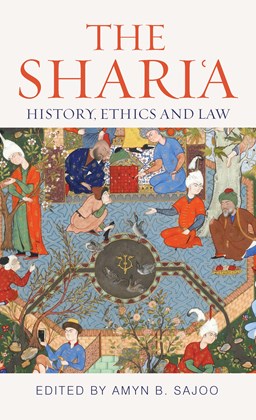The Shariʿa History, Ethics and Law
I.B. Tauris in association with the Institute of Ismaili Studies
Why is the term shariʿa – the mention of which conjures up images of a politicised religion in many parts of the world – understood in the ways that it is today? For Muslims and non-Muslims alike, much is read into this term, often with scant regard for its historical, cultural or theological underpinnings. The politics of identity has a profound effect on contemporary life, both secular and religious, and this includes our understandings of the shariʿa. Yet at the core of this concept, for Muslims, is the quest for a moral compass by which to navigate a path through life (Qur’an, 45:18), informed deeply by revelation and its interpretation by the Prophet Muhammad as well as his closest Companions. Built on this foundation is an ongoing human endeavour to grasp and lend expression to that teaching – elaborately in law, but no less so in devotional, ethical and customary practices in diverse Shiʿi and Sunni Muslim communities, including in the West.
Popular myths about the shariʿa – that it is divine law, that it is contained in a single code recognised by all Muslims, that it is about controlling behavior, that it ‘defines’ Islam – are challenged in this volume by leading scholars, with a view to illuminating how we arrived here and where we might be headed. The claims of the modern state as the custodian of the shariʿa are put into perspective, alongside the vital role of a pluralist civil society. From bioethics, human development, family law and finance to constitutional and human rights issues, this fifth volume in the Muslim Heritage Series offers an accessible account of the ideals and realities of the shariʿa . As such, it will appeal not only to specialists in the humanities and social sciences, but also to the general reader with an interest in global affairs and informed citizenship.
List of Illustrations
About the Contributors
Standard Abbreviations
1. Introduction: A Multifaceted Venture
Amyn B. Sajoo
2. Foundations
Khaled Abou El-Fadl
3. Recovering the Ethical: Practices, Politics, Tradition
Ebrahim Moosa
4. Sustaining and Enhancing Life
Karim H. Karim
5. Spiritual Refinement
Sa'diyya Shaikh
6. Women's Equality
Ziba Mir-Hosseini
7. Family Law to Finance
Mohamed Keshavjee and Raficq Abdulla
8. Bioethics
Amyn B. Sajoo
9. Legitimising Authority: A Muslim Minority under Ottoman Rule
Amaan Merali
10. Democratisation and the Sharia: The Indonesian Experience
Carool Kersten
11. The Shariʿa in the Western Landscape
Rex Ahdar and Nicholas Aroney
12. Secularism and the Shariʿa: Lessons from an Ontario Debate
Jennifer Selby
Index
‘Each essay includes helpful suggestions for further reading. This book opens the way to a new inquiry: Shari'a as the linking of divine will and human good. It makes for excellent reading and thinking . . . Summing Up: Highly recommended.’
– Choice
Amyn B. Sajoo is Scholar-in-Residence at Simon Fraser University's Centre for the Comparative Study of Muslim Societies and Cultures in Vancouver, and the chief editor of the Muslim Heritage Series, in which this is the fifth volume. He has taught at McGill University, the University of British Columbia, and the Institute of Ismaili Studies, London, and has held visiting fellowships in the Middle East, Southeast Asia, and at Cambridge. A specialist in law, ethics and civil society, he has published Pluralism in Old Societies and New States (1994) and Muslim Ethics: Emerging Vistas (2004), and edited several books including Civil Society in the Muslim World: Contemporary Perspectives (2002), Muslim Modernities: Expressions of the Civil Imagination (2008), and A Companion to Muslim Cultures (2011).

